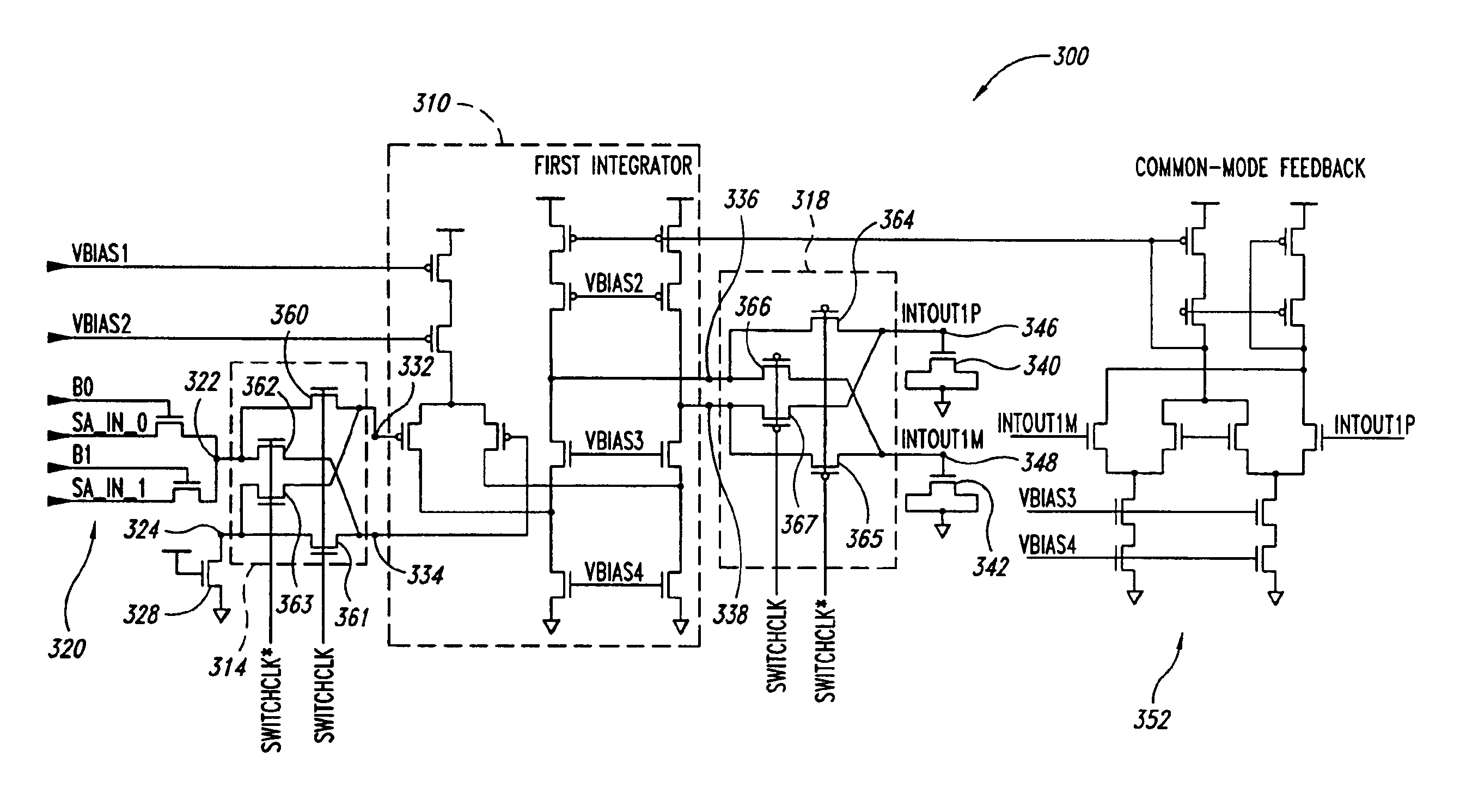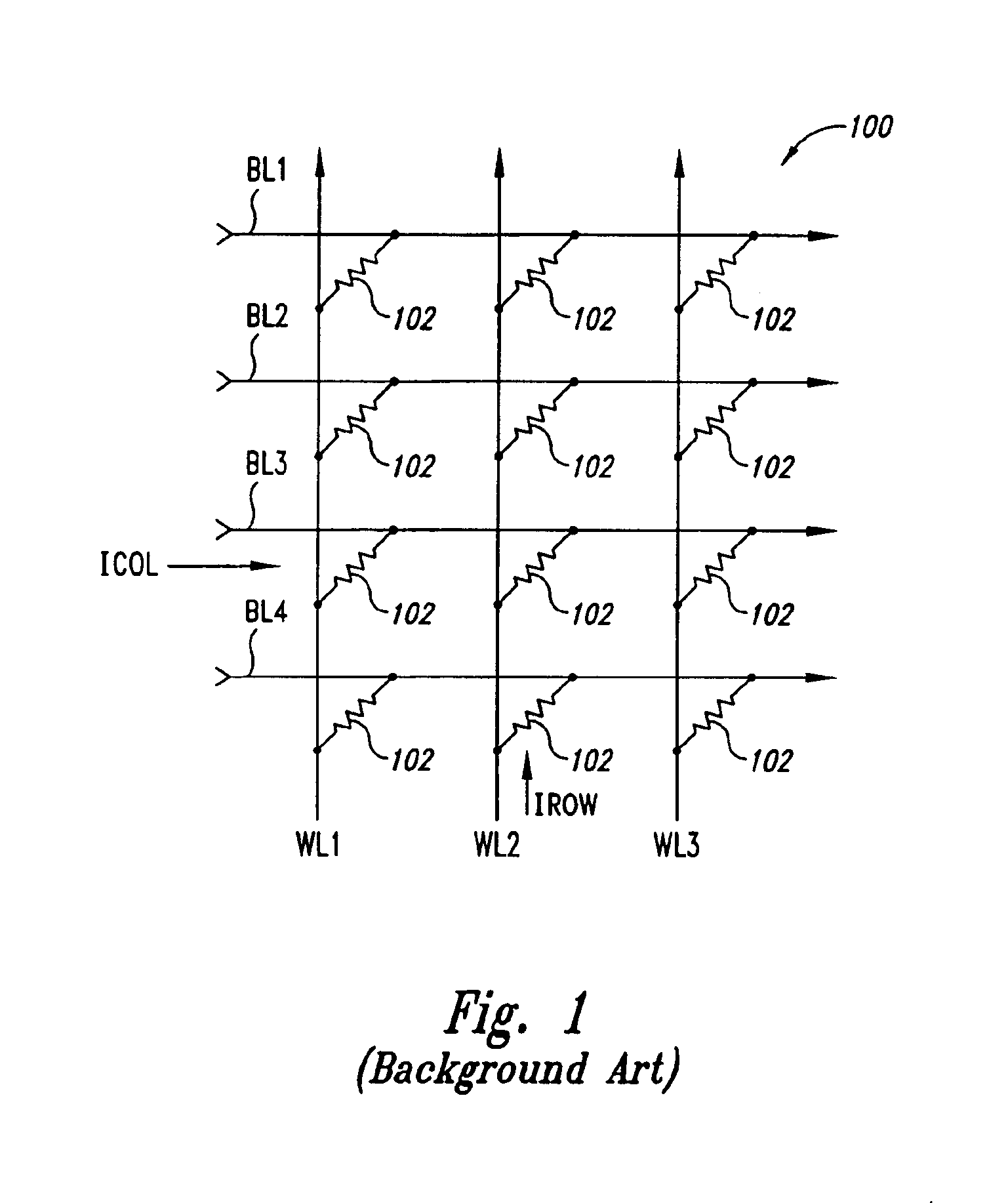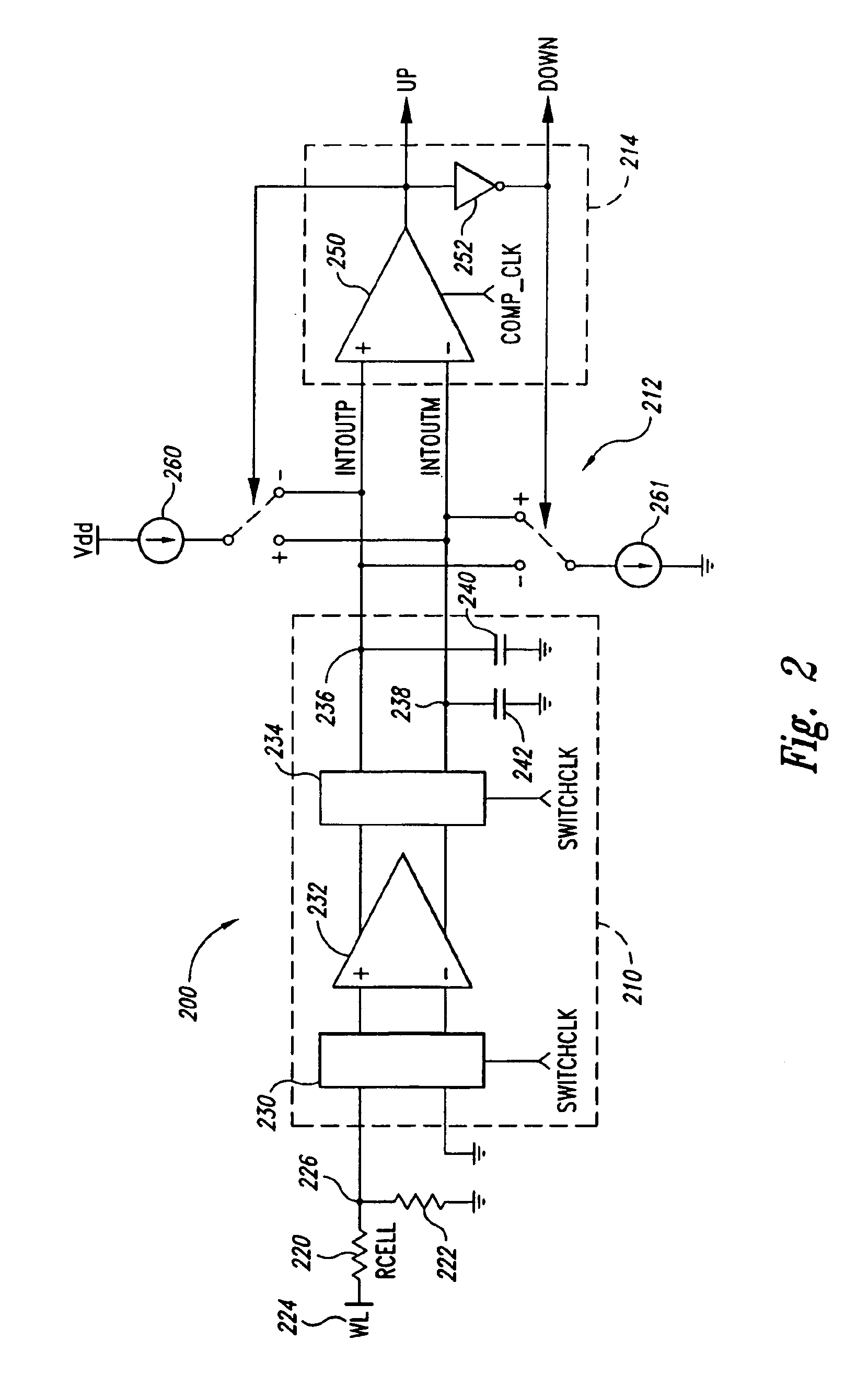Noise resistant small signal sensing circuit for a memory device
a memory device and sensing circuit technology, applied in the field of integrated circuit memory devices, can solve the problems of physical largeness, reduced device reliability, and relatively slow existing mass storage devices
- Summary
- Abstract
- Description
- Claims
- Application Information
AI Technical Summary
Benefits of technology
Problems solved by technology
Method used
Image
Examples
Embodiment Construction
Embodiments of the present invention are directed to a noise resistant sensing circuit for data sensing circuitry that uses averaging to sense small differences in signal levels representing data states, such as in resistor-based memory circuits. Certain details are set forth below to provide a sufficient understanding of the invention. However, it will be clear to one skilled in the art that the invention may be practiced without these particular details. In other instances, well-known circuits, control signals, and timing protocols have not been shown in detail in order to avoid unnecessarily obscuring the invention.
FIG. 2 illustrates an embodiment of a sensing circuit 200 according to an embodiment of the present invention. The sensing circuit 200 includes an integrator stage 210, a switching current source 212, and a clocked comparator 214. As will be explained in more detail below, an output signal UP (or DOWN) of the sensing circuit 200 is averaged over a period of time to det...
PUM
 Login to View More
Login to View More Abstract
Description
Claims
Application Information
 Login to View More
Login to View More - R&D
- Intellectual Property
- Life Sciences
- Materials
- Tech Scout
- Unparalleled Data Quality
- Higher Quality Content
- 60% Fewer Hallucinations
Browse by: Latest US Patents, China's latest patents, Technical Efficacy Thesaurus, Application Domain, Technology Topic, Popular Technical Reports.
© 2025 PatSnap. All rights reserved.Legal|Privacy policy|Modern Slavery Act Transparency Statement|Sitemap|About US| Contact US: help@patsnap.com



